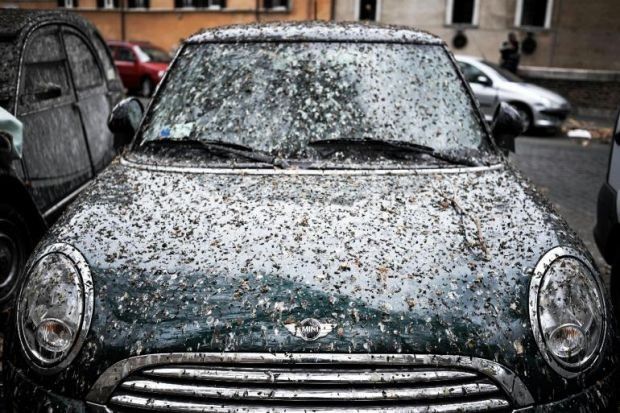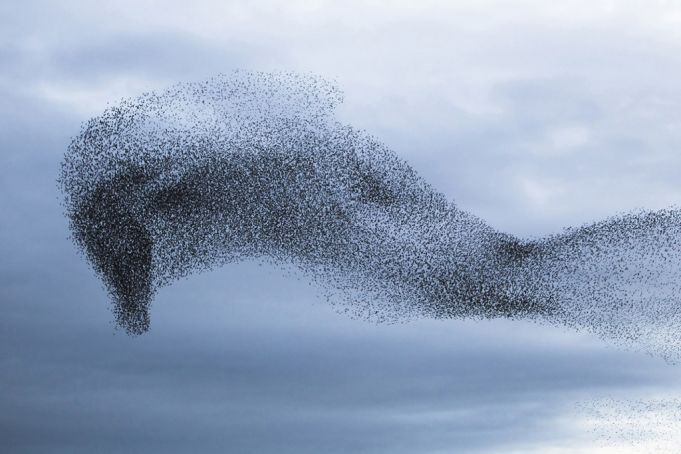Rome uses Harris's hawks to move troublesome starlings.
Five specially-trained hawks are being used to move the roughly four million wintering starlings away from central areas of Rome, in a pilot project opposed by environmentalists.
The five Harris's hawks – a medium-sized bird of prey that breeds between the southwestern US and Argentina – are tasked with scaring the troublesome birds away from the area along the Lungotevere.
The service provided by the hawks' handlers is free. The decision to use hawks comes days before the city rolls out its “distress call” campaign, an amplified alarm that mimics a call of danger used by starlings in the wild. In recent years Rome had to abandon the annual initiative, due to lack of funds, but this year the €40,000 contract was put out to tender and not awarded directly as in the past.
The city says the hawks were effective in moving starlings away from the town of Latina south of Rome, but Italy's national agency for animal protection ENPA claims the project is merely a "gimmick."
The foul-smelling guano produced by starlings makes the Lungotevere an inhospitable place for pedestrians, cyclists and motorists, particularly the stretch between Ponte Sisto and Ponte Garibaldi. Motorists who park their cars on the Lungotevere during this period often return to find their vehicles virtually unrecognisable while pedestrians in the area can be seen either armed with umbrellas or else running for cover.
In recent decades the number of starlings in the capital has increased dramatically, and their spectacular swirling flight patterns earn much attention. The birds are attracted by the city’s artificially-high urban climate, less rainfall and wind, and the virtual absence of predators.




















